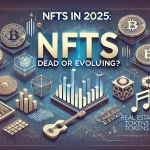Introduction
Cryptocurrency has not only changed the global financial system but also introduced new risks.
In recent years, North Korea has emerged as one of the biggest players in crypto heists, targeting exchanges and decentralized platforms.
These attacks raise serious concerns about global security, regulation, and the future of crypto privacy.
How North Korea Uses Crypto Heists for Funding
North Korea faces strict economic sanctions that limit its access to global markets.
To bypass these restrictions, state-backed hacking groups like Lazarus have turned to cryptocurrency theft.
Stolen funds are used to finance nuclear programs, weapons, and government operations.
The Scale of North Korean Crypto Attacks
North Korean hackers have stolen over $1.5 billion worth of cryptocurrency in recent years.
In 2024 alone, Lazarus reportedly hacked Ethereum-based platforms and centralized exchanges, executing the largest crypto heist in history.
Most funds are laundered through privacy coins, mixers, and decentralized exchanges (DEXs) to avoid detection.
Key Techniques Used by North Korean Hackers
Phishing Attacks: Tricking exchange employees into giving up access credentials.
DeFi Exploits: Finding vulnerabilities in smart contracts to drain liquidity pools.
Social Engineering: Creating fake job offers and using fake identities to gain trust.
Bridging Assets: Moving stolen tokens across blockchains to hide trails.
Impact on Global Crypto Security
North Korean attacks have forced exchanges and DeFi platforms to increase security measures.
Exchanges now use multi-factor authentication, cold storage, and advanced monitoring.
There is also a rise in AI-based threat detection and blockchain analytics tools.
Response from Governments and International Bodies
Countries like the U.S., Japan, and South Korea have imposed sanctions on crypto wallets linked to North Korean hackers.
The FBI and Interpol are working with crypto firms to track and freeze stolen assets.
The United Nations has warned that crypto thefts are funding dangerous programs in North Korea.
Effect on Crypto Privacy and Regulation
Due to these attacks, regulators are calling for stricter KYC/AML rules on crypto platforms.
Privacy coins like Monero and mixers like Tornado Cash are under heavy scrutiny.
While privacy is a core value of crypto, governments argue for limits to stop criminal activities.
What Exchanges Are Doing to Combat Threats
Binance, Coinbase, and Kraken have improved security and cooperation with law enforcement.
Exchanges are blacklisting suspicious addresses and freezing assets when flagged.
DeFi platforms are adding security audits and bug bounties to find vulnerabilities before exploitation.
The Debate Over Crypto Privacy vs. Security
The rise in North Korean heists has reignited debates over crypto’s core values.
Some argue for more transparency and tracking to protect the ecosystem.
Others warn that too much surveillance could destroy decentralization and privacy.
Role of AI and Blockchain Analytics in Fighting Heists
Companies like Chainalysis and Elliptic use AI tools to trace stolen funds across blockchains.
AI systems can flag unusual activity, helping prevent theft before it happens.
These tools are becoming essential as crypto crimes grow more sophisticated.
Impact on DeFi and NFT Markets
Hackers are now targeting NFT and DeFi platforms, where security is often weaker.
Some attacks drain millions in liquidity from decentralized protocols.
This has led to calls for standardized security practices across DeFi and NFT ecosystems.
The Future of Crypto Security Post-Heists
Expect stronger collaboration between exchanges, governments, and security firms.
More security protocols and regulations will be introduced to prevent future attacks.
Investors will need to verify platform security before engaging with any crypto project.
What Investors and Users Can Do to Stay Safe
Use secure wallets: Prefer cold storage for large amounts.
Enable multi-factor authentication: Always add extra layers of security.
Avoid suspicious links and offers: Phishing is still a top threat.
Research platforms: Use exchanges and DeFi apps that have passed security audits.
Conclusion
North Korea’s crypto heists highlight both the strength and vulnerability of the cryptocurrency ecosystem.
While decentralized finance opens new opportunities, it also creates risks exploited by bad actors.
The future of crypto depends on balancing innovation with security, ensuring that freedom doesn’t become a loophole for crime.
As crypto evolves, global cooperation and better technology will be key to protecting users and stopping nation-backed cybercrime.











